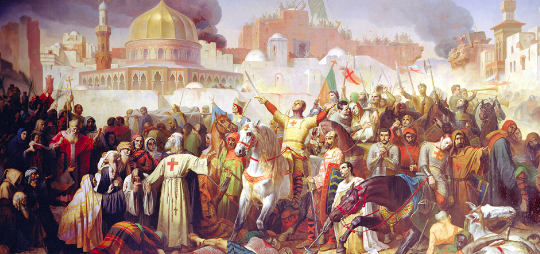Christianity, as one of the world’s major religions, preaches love, peace, and forgiveness. However, throughout history, there have been instances where violence has been carried out in the name of Christianity. This raises a profound moral and ethical question: Is the use of violence ever justified in the name of Christianity? To explore this complex issue, we must delve into historical events, theological perspectives, and the implications of violence on religious teachings and principles.
Understanding Christianity’s Foundational Teachings
At its core, Christianity is based on the life and teachings of Jesus Christ, who emphasized love, compassion, and non-violence. Central to the Christian faith is the commandment to “love your neighbor as yourself” and to “turn the other cheek” when faced with aggression. These teachings advocate for peaceful resolutions and forgiveness, making violence seemingly contradictory to the faith’s fundamental principles.
Historical Instances of Violence in the Name of Christianity
Throughout history, Christianity has faced periods of violence, often in the form of wars, inquisitions, and conflicts that purportedly served to defend or spread the faith. One significant example is the Crusades, a series of religiously motivated military campaigns launched by Western European Christians to reclaim the Holy Land from Muslim rule during the medieval period. These campaigns resulted in widespread bloodshed and strained interfaith relations for centuries to come.
Another historical example is the Spanish Inquisition, a brutal and oppressive movement by the Catholic Church to suppress heresy and enforce religious orthodoxy. Thousands of people were persecuted, tortured, and executed, leading to a dark chapter in Christian history and a lasting debate on the compatibility of violence with religious beliefs.
Theological Perspectives on Violence in Christianity
Despite the historical instances of violence, Christian theologians have held diverse perspectives on the justification of such actions. Some argue for the “just war” theory, which posits that in extreme circumstances, violence may be permissible to protect innocent lives and uphold justice. This theory establishes strict criteria for engaging in warfare, such as legitimate authority, just cause, and proportionality.
On the other hand, pacifist interpretations emphasize the absolute rejection of violence and focus on nonviolent methods to address conflicts and promote peace. Prominent Christian figures like Martin Luther King Jr. and Mahatma Gandhi exemplified the power of nonviolent resistance in achieving social change, underscoring the possibility of peaceful solutions even in the face of oppression.
Challenges of Interpretation and Religious Extremism
Interpretation plays a crucial role in shaping the understanding and application of religious principles. In Christianity, varying interpretations of scripture have led to divergent views on the use of violence. Radical interpretations have been used to justify acts of violence by individuals or groups who claim to represent Christianity, leading to religious extremism.
It is important to distinguish between the actions of a few extremists and the beliefs of the broader Christian community. The majority of Christians firmly reject violence and uphold the core values of love, forgiveness, and peace. Instances of violence perpetrated by a minority should not be taken as representative of Christianity as a whole.
Impact on Interfaith Relations
The use of violence in the name of Christianity has had significant ramifications for interfaith relations. Historical events like the Crusades and the Inquisition created lasting divisions and mistrust between Christian and Muslim communities. In the modern world, conflicts fueled by religious differences continue to challenge efforts to promote peace and understanding among diverse religious groups.
Promoting a Culture of Dialogue and Understanding
To counteract the negative impacts of violence associated with Christianity, religious leaders and communities must actively promote interfaith dialogue and mutual understanding. Engaging in respectful conversations can foster empathy, break down stereotypes, and help build bridges of cooperation between faith traditions.
Conclusion
The question of whether violence can ever be justified in the name of Christianity is a complex and nuanced issue. While historical events reveal instances of violence in the Christian past, it is essential to remember that the religion’s fundamental teachings prioritize love, compassion, and forgiveness. Various theological perspectives and interpretations further complicate the matter.
To move towards a more peaceful world, it is crucial for individuals and communities to understand the complexities of religious teachings and reject violence in all its forms. By promoting dialogue, understanding, and cooperation among diverse religious groups, we can collectively work towards a more harmonious global society that respects the sanctity of all human life.
